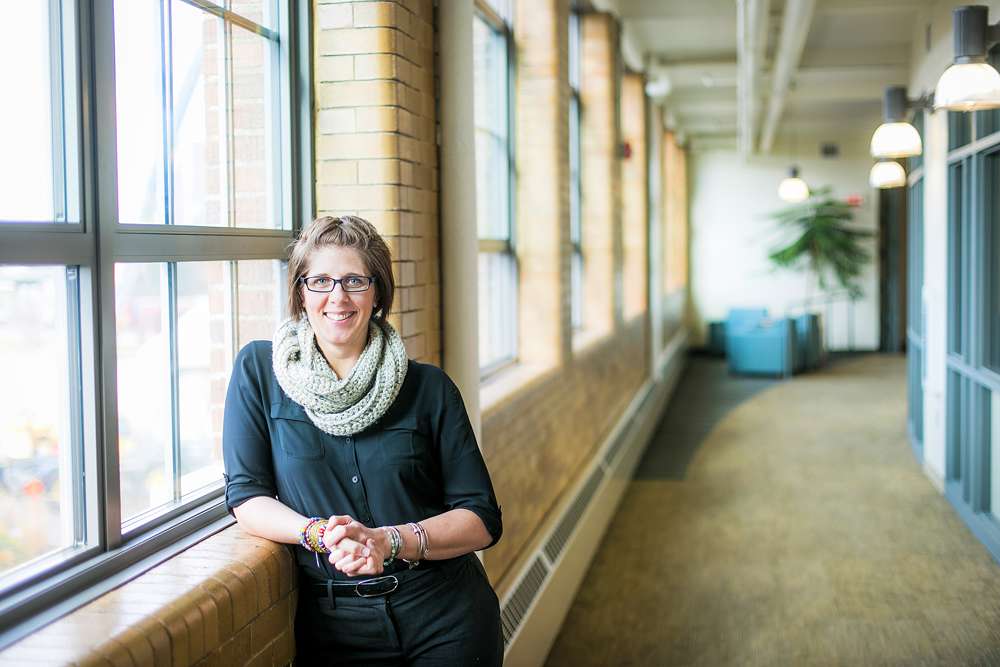Rose Vukovic stumbled upon a career in special education with some help from an unlikely mentor—her English 101 professor at a small community college in Prince George, Canada. It was Stan Chung who first inspired her to think bigger.
“Stan pushed me, and it wasn’t always pleasant,” says Vukovic, now an associate professor of educational psychology. “I loved the way he thought and the feedback he would give. He was the one who got me excited about school because he believed in me.”
Vukovic soon transferred to a small, well-respected liberal arts college, where she majored in psychology and volunteered at a learning disability center. But it wasn’t until she took her first learning disabilities class that her path became clearer.
“I always liked helping students who struggled in school,” says Vukovic. “The learning disabilities class helped me bridge the gap between those experiences and my psychology coursework. I saw how it could be applied.”
Making the research add up
Rose wrote her undergraduate thesis on learning disabilities in reading and went on to earn her M.A. and Ph.D. from the University of British Columbia. That’s where she shifted her focus to learning disabilities in math.
“My adviser had a big reading project with a few math tasks,” Vukovic recalls. “We were working with kindergarten students. Already they were saying, ‘I’m really bad at math,’ or ‘Math’s so hard.’ It made me think, ‘Why is it more socially acceptable to say you’re bad at math than reading?’ That’s when I volunteered to take on the math portion of the study.”
Later, as an associate professor at New York University, Vukovic discovered that some of the math difficulties of students in her research project couldn’t easily be explained using her special education training.
“One of my studies showed that 75 percent of students in my New York sample would have met the criteria for a learning disability in math—which is just not possible,” she says. “It forced me to think about expanding how we understand struggling math learners.”
That’s when an undergraduate English honors student approached her, hoping to do research on dyslexia. Like her mentor Stan Chung, Vukovic challenged the student to think bigger and find a topic that would suit both of their interests. They worked together to publish a study on mathematics anxiety in young children.
It was this kind of collaboration that brought Vukovic to Minnesota in 2014 as the director of undergraduate studies in the Department of Educational Psychology, just as a new undergraduate major in special education was launched.
Guiding others to their path
“For me, what’s most exciting is working with students, particularly undergraduates,” says Vukovic. “Students bring fresh perspectives to research and open minds to the classroom.”
With help from a few key mentors, Vukovic has made a career out of thinking differently. Today, she’s dedicated to helping special education undergraduates build careers on the same principles.
“In our undergraduate program, we are committed to training the best special education teachers,” she says. “Students earn their degree and teaching license in four years while learning from some of the leading researchers in the field. If our students don’t leave our program thinking differently in some way, then we haven’t succeeded in our mission.”
Learn more about Rose Vukovic, the special education undergraduate program, and the Department of Educational Psychology.
Story by Sarah Jergenson | October 2015
